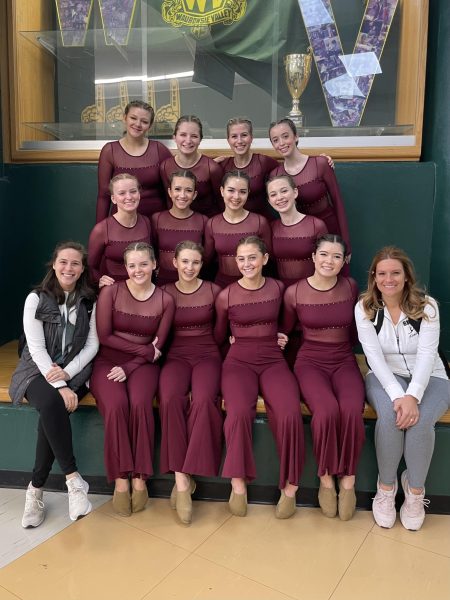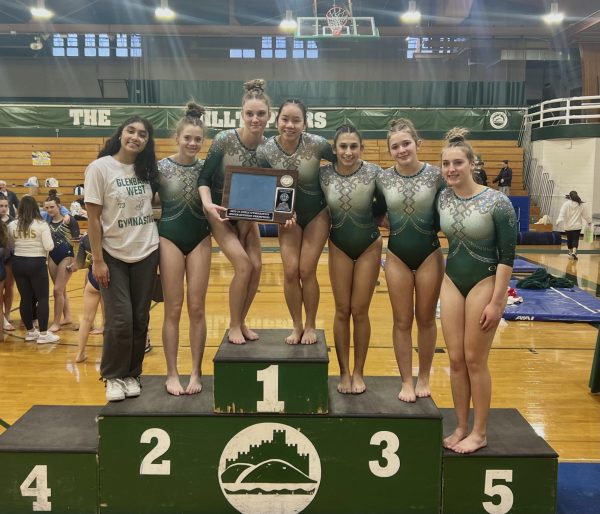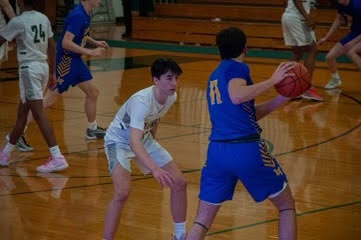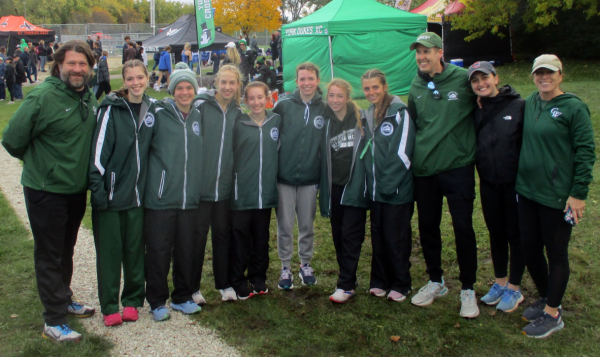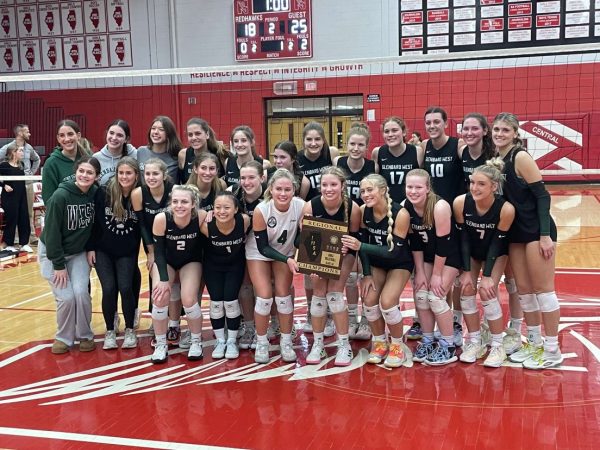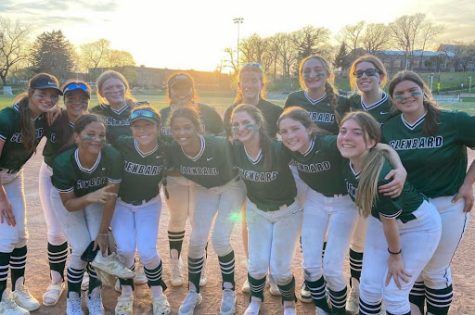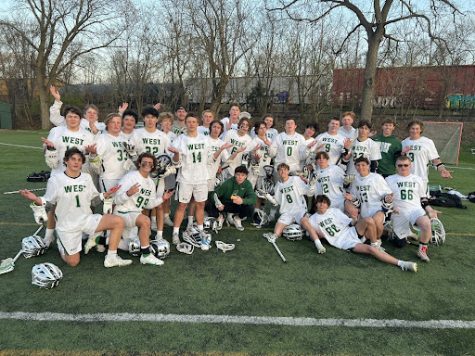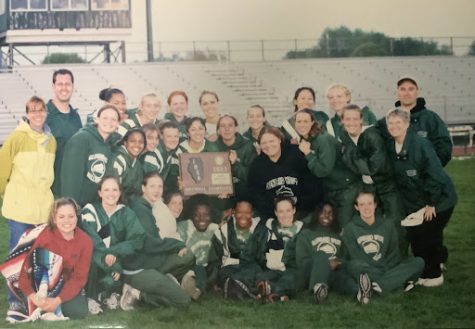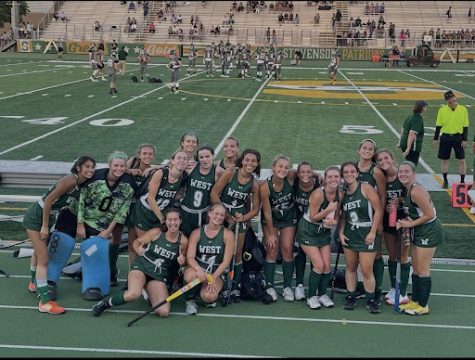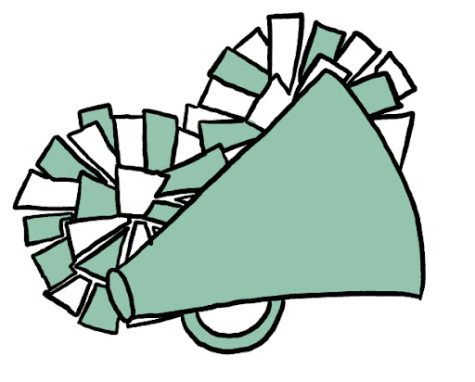Cubs Reign Victorious in Playoffs and World Series
The Chicago Cubs exceeded expectations in their postseason gameplay.
Finally. After 108 years of heartbreak, disappointment, and endless optimism, the Cubs have done what was thought would never be done. It took thousands of games, hundreds of players, 48 managers, and countless renditions of “Go Cubs Go,” but it was all worth it. The blue W can be flown all the way until the first day of spring training now that the curse has at long last been broken. Finally, the Chicago Cubs have won the World Series.
The Cubs have had the longest championship drought in all of American sports and many attribute it to the Curse of the Billy Goat. After William Sianis and his goat were kicked out of Game 4 of the 1945 World Series because his goat smelled so foul that it was bothering other spectators, Sianis claimed that the Cubs “ain’t gonna win no more.” The Cubs would lose that series, and then never win another National League pennant for the next 70 years. They were close, with four NLCS appearances in that time. All resulted in losses, with the Steve Bartman incident in the 2003 series and the error by Leon Durham in the 1984 series being the most infamous moments. After being swept in the NLCS last year, it seemed as if this curse would never die.
Nonetheless, hopes were still high for this year, with many key players returning. There were also some key acquisitions in Ben Zobrist, who had won the World Series the previous year with the Kansas City Royals, and in Aroldis Chapman, a closer who holds the current record for the fastest pitch in MLB history. The Cubs had a fantastic regular season, with a league-high 103 wins. They defeated the San Francisco Giants in four games in the NLDS, ending their even-year championship streak (in 2010, 2012, and 2014, the Giants won the World Series, so it would be appropriate for them to continue that in 2016). After being down two games to one to the Los Angeles Dodgers in the NLCS, the Cubs roared back and won three games in a row to win the pennant and advance the World Series. Connor Williams, a sophomore, was at Game 6 and says, “Being at the game that sent the Cubs to the World Series was hands down the second greatest experience of my life, behind being down at Wrigley for Game 7 [of the World Series].”
The Cubs were set to face off against the Cleveland Indians, another team with a long championship drought, as they last won it all in 1948. Both teams split the series 1-1 in Cleveland, bringing the World Series back to Wrigley for the first time in 71 years. However, the Cubs lost two straight in a nail-biting Game 3 and a blowout in Game 4. It looked as if this season would end as so many others have, but the Cubs were able to hold onto a 3-2 win in Game 5, anchored by Chapman’s superb performance on the mound in the final three innings. The series went back to Cleveland and the Cubs dominated Game 6 with a 9-3 win, with Addison Russell tying a World Series record with 6 RBIs in one game.
All of the past 108 years had culminated into a winner-take-all Game 7. Corey Kluber, who had beaten the Cubs twice in the World Series, was on the mound, causing some concern amongst Cubs fans. But the Cubs had finally figured Kluber out, as Dexter Fowler went yard on only the fourth pitch of the game. The Cubs seemed to have the game under control throughout the majority of the game. Sure, a wild pitch by Jon Lester had let two runs score, but they were up 6-3 going into the 8th. With four outs to go and a man on first, Joe Maddon, the Cubs manager, decided to bring in Aroldis Chapman to close out the game, a pitcher notorious for performing worse with men on base than with clear bases. Both this and the fact that he had pitched in both the two previous games meant that he was not at the top of his game, and the Cubs paid for it. An RBI double by Brandon Guyer and a two-run homer by Rajai Davis tied the game at 6. At this point, it looked as if history was about to repeat itself once again and the Cubs were going to blow yet another lead. The 8th inning mercifully ended with no more damage and a scoreless 9th inning meant the game was heading into extras, but not before it started raining, causing a brief delay.
This rain delay is perhaps one of the most significant rain delays in the history of the sport, as Jason Heyward called the team together for a team meeting during the delay, allowing the Cubs to regroup and refocus. Perhaps the skies opened to wash away the stench of the cursed goat that has followed the Cubs for the past 71 years, since their bats were on fire in the top of the 10th. It all started with a leadoff single by Kyle Schwarber, who had Albert Almora Jr. pinch run for him. Kris Bryant flew out, but Almora Jr. made an extremely important and intelligent baserunning decision that put him in a position to score. Anthony Rizzo was intentionally walked to try to set up a double-play situation, but Ben Zobrist then batted in Almora Jr.. Addison Russell was also intentionally walked and then Miguel Montero came up in the clutch with another game-winning hit in an RBI single (he had a pinch-hit grand slam in Game 1 of the NLCS). The top of the 10th ended with the Cubs up 8-6
Carl Edwards Jr. came into close out the game, and he got the first two outs with no issues. But an RBI single brought the Indians within one and Maddon was forced to go to the bullpen with Mike Montgomery. The final batter for the Indians was Michael Martinez, who hit a slow roller towards Kris Bryant. Bryant charged the ball and scooped it up, grinning like a gleeful child all the way, knowing what he was about to do. The ball found Rizzo’s mitt and he, the Cubs, and the city of Chicago erupted into celebrations 108 years in the making. Fireworks were set off, tears were shed, and dreams were made. It was reported that chants of “Go Cubs Go” could be heard from miles and miles away, and the streets of Wrigleyville were chock full of scenes of pure elation.
The celebrations did not stop for days, as seen by the Cubs victory parade being the seventh largest gathering in human history. Shockwaves of this momentous event are clearly felt at West, with Max Diab, a senior, feeling like “a lifetime goal has been achieved for me because I never thought it would ever happen.”
Mr. Wyllie, a math teacher at Glenbard West, who has been a lifelong Cubs fan and can “remember running home after school to follow Ernie Banks as he neared hitting his 500th career home run,” and that a Cubs World Series win “means more than I can put into words.” He calls the World Series “one of the greatest World Series ever” and thinks “there is no doubt that the Cubs winning the World Series is one of the biggest moments in American sports history.” It certainly was a series for the ages, and it is only fitting that the Cubs ended their historic drought in such a memorable and spectacular fashion.
